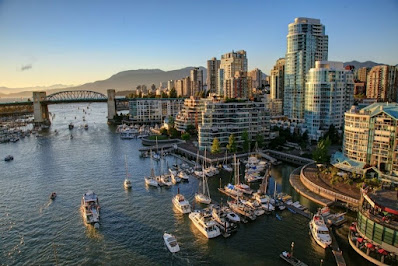 |
| Many homes and condos in Vancouver are used for Airbnbs |
Vancouver City Hall is trying to avoid raising property taxes by finding other areas to get revenue. Starting next year, taking an Uber or renewing a dog license will go up, but the biggest increase will be short-term rental license fees, in other words homeowners who run Airbnbs.
The current price of the business license for short-term rentals is CAD$109 and it will surge to CAD$1,000 in 2024.
City staff had recommended increasing the fee to CAD$450, but ABC city councillor Lenny Zhou proposed the massive jump in short-term rental license fees -- that was passed in a vote -- in a bid to turn these living units into long-term rentals to ease the housing crisis.
 |
| Zhou proposed fees jump to CAD$1,000 |
One home on the westside I've seen has around five rooms that are used for Airbnb, most of them sharing bathrooms, with strict rules for guests to be quiet in the evenings and to use a passcode to get in.
In other cases neighbours of homes or condos that have Airbnbs have complained about parties or strangers coming in and out of the place.
As a result Zhou is hoping the CAD$1,000 license fee will deter people from making extra money from Airbnbs.
Patrick Baldwin has been an Airbnb host for five years and says the new fee will affect his family's ability to live in Vancouver, as the income he makes from Airbnb makes his mortgage affordable.
"In a city where home ownership is nearly impossible for young families, we have been able to make that work, but these new changes are going to make it even harder for people like us to achieve or maintain home ownership," he wrote in an email to a local news outlet.
"It really does feel like a slap in the face."
 |
| These spaces should be rented out, not for Airbub |
These supporters also suggest more should be done to crackdown on these illegal short-term rentals, as some 4,500 are listed online.
But Sarah Hicks, Vancouver's chief license inspector, says the city's short-term rental enforcement team is comprised of just six enforcement clerks, one enforcement co-ordinator, and one dedicated property use inspector.
Hicks says they mostly do digital-based enforcement by reviewing online listings and respond to complaints filed online.
Sounds like they are severely short-staffed and if the municipal government wants to be serious about shutting down these Airbnbs, surely more people need to be employed in this department? Or do they want to make more money from handing out these licenses?
Nevertheless it's a positive step forward for the city to move in this direction and hopefully it will lead to more living spaces being rented out to locals or foreign students who desperately need a roof over their heads in the months and years to come.




No comments:
Post a Comment